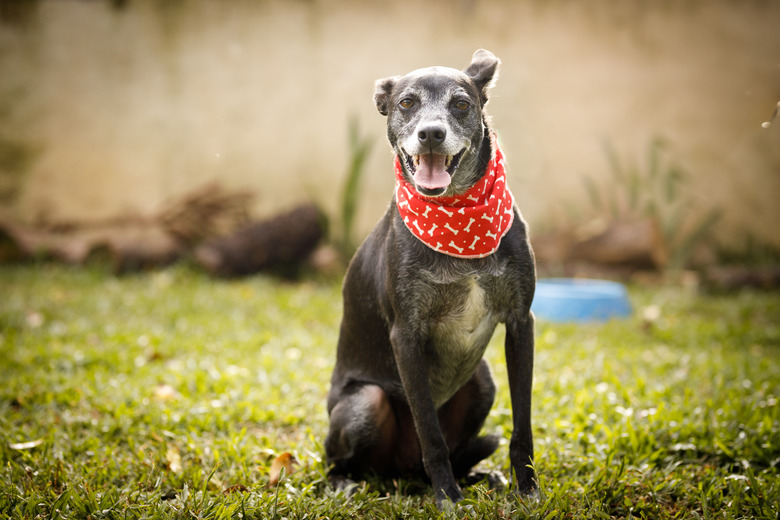What Is The Age To Neuter Dogs?
Traditionally, dogs have been neutered between six to nine months of age, although the surgery can be performed on puppies who are only two months old. While there are many benefits to neutering your dog, some research in veterinary medicine suggests there are some adverse health risks to neutering at an early age, so some veterinarians may recommend waiting longer to neuter your dog.
Many animal shelters will neuter dogs before adopting them out or make neutering a requirement for new pet owners. When you get a new puppy or dog, work with your veterinarian to determine the best age to neuter your dog.
The neutering process
The neutering process
Neutering male dogs is a straightforward procedure that can be done by your veterinarian or at a low-cost spay/neuter clinic. The surgery is done under general anesthesia but unless there are complications, your dog will be able to go home the same day. The veterinarian makes an incision in front of the dog's scrotum, then removes the testicles through the incision.
Your vet will provide care instructions for your dog after surgery. This will likely include restricting activity and offering pain medication. Female dogs undergo a procedure known as spaying. Female dogs are spayed ideally before they go into their first heat. The American Animal Hospital Association (AAHA) says small breed female dogs should be spayed before their first heat cycle, which begins at about five to six months of age. A large-breed female dog can be spayed from 5 to 15 months, depending on your dog's disease risk and lifestyle.
When to neuter puppies
When to neuter puppies
A puppy can be neutered when he reaches eight weeks of age as long as his testicles have descended. Although the puppies recover quickly, most vets don't recommend neutering at this early age. In most cases, dogs are neutered when they are six to nine months of age before they enter sexual maturity. This eliminates the incidence of unwanted litters and helps control overpopulation. There is some debate about the best age to neuter puppies and some vets no longer recommend neutering at an early age, especially for larger dogs.
The breed of dogs also plays a factor in deciding when to neuter. The AAHA recommends that small-breed dogs that weigh less than 45 pounds be spayed at six months. Large-breed dogs should not be neutered until they are finished growing. This is usually when they are nine to 15 months old.
Health risks of early neutering
Health risks of early neutering
Leaving males intact until the growth plates close helps to decrease the risk of some orthopedic injuries. Large-breed males that are neutered early don't have the hormones that signal the long bones to stop growing. As a result, these bones grow longer than they should and dogs are at a higher risk of joint disorders and conditions such as hip dysplasia and cranial cruciate ligament rupture.
The increased risk can vary significantly depending on breed. Neutering a golden retriever before six months of age increases his risk of some joint disorders by up to five times while the risk is only doubled in Labrador retrievers, notes a study published in the July 2014 edition of PLoS ONE.
When to neuter older dogs
When to neuter older dogs
Healthy adult and senior intact dogs can also be neutered. There is no upper age limit for neutering as long as your dog is in good health. Your vet will perform a physical examination and blood tests before surgery to make sure your adult or senior dog is healthy enough to undergo anesthesia and tolerate pain medication. Pre-existing medical conditions and obesity may disqualify your dog for the procedure.
There is an increased risk of complications during and after surgery, but neutering is still a simple and safe procedure for most dogs. Expect an older dog to take a bit longer to recuperate before he can resume normal activities.
Benefits of gonadectomy
Benefits of gonadectomy
There are many health benefits of sterilization, which veterinarians sometimes refer to as gonadectomy, spaying or neutering, or castration. In addition to living longer, neutered males have a decreased risk of prostate disease and cancer. Neutering also eliminates the risk of developing testicular cancer. Contrary to what many dog owners believe, neutering won't make your pet fat. While it does slow his metabolism slightly, the primary factors making him overweight are overfeeding and lack of exercise.
Neutering can also help to decrease behaviors common to intact males such as roaming, mounting, and lifting his leg to mark. It can also reduce aggression. Sterilization alone won't correct behavior issues. You will still need to spend time training your dog and offering plenty of positive reinforcement.
Always check with your veterinarian before changing your pet's diet, medication, or physical activity routines. This information is not a substitute for a vet's opinion.
References
- American Kennel Club: Spaying and Neutering Your Puppy or Adult Dog: Questions and Answers
- American Animal Hospital Association: When Should I Spay or Neuter My Pet?
- DMV360: Reexamining the Early Spay-Neuter Paradigm in Dogs
- The Pet Hospitals: 6 Months or 6 Years: When and If to Spay or Neuter
- PLoS ONE: Long-Term Health Effects of Neutering Dogs: Comparison of Labrador Retrievers with Golden Retrievers


